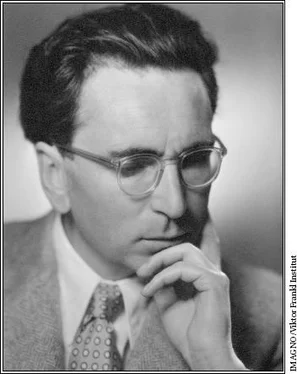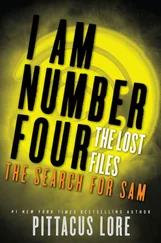As I have already mentioned, the process of selecting Capos was a negative one; only the most brutal of the prisoners were chosen for this job (although there were some happy exceptions). But apart from the selection of Capos which was undertaken by the SS, there was a sort of self-selecting process going on the whole time among all of the prisoners. On the average, only those prisoners could keep alive who, after years of trekking from camp to camp, had lost all scruples in their fight for existence; they were prepared to use every means, honest and otherwise, even brutal force, theft, and betrayal of their friends, in order to save themselves. We who have come back, by the aid of many lucky chances or miracles—whatever one may choose to call them—we know: the best of us did not return.
Many factual accounts about concentration camps are already on record. Here, facts will be significant only as far as they are part of a man’s experiences. It is the exact nature of these experiences that the following essay will attempt to describe. For those who have been inmates in a camp, it will attempt to explain their experiences in the light of present-day knowledge. And for those who have never been inside, it may help them to comprehend, and above all to understand, the experiences of that only too small percentage of prisoners who survived and who now find life very diffcult. These former prisoners often say, “We dislike talking about our experiences. No explanations are needed for those who have been inside, and the others will understand neither how we felt then nor how we feel now.”
To attempt a methodical presentation of the subject is very diffcult, as psychology requires a certain scientific detachment. But does a man who makes his observations while he himself is a prisoner possess the necessary detachment? Such detachment is granted to the outsider, but he is too far removed to make any statements of real value. Only the man inside knows. His judgments may not be objective; his evaluations may be out of proportion. This is inevitable. An attempt must be made to avoid any personal bias, and that is the real diffculty of a book of this kind. At times it will be necessary to have the courage to tell of very intimate experiences. I had intended to write this book anonymously, using my prison number only. But when the manuscript was completed, I saw that as an anonymous publication it would lose half its value, and that I must have the courage to state my convictions openly. I therefore refrained from deleting any of the passages, in spite of an intense dislike of exhibitionism.
I shall leave it to others to distill the contents of this book into dry theories. These might become a contribution to the psychology of prison life, which was investigated after the First World War, and which acquainted us with the syndrome of “barbed wire sickness.” We are indebted to the Second World War for enriching our knowledge of the “psychopathology of the masses” (if I may quote a variation of the well-known phrase and title of a book by LeBon), for the war gave us the war of nerves and it gave us the concentration camp.
As this story is about my experiences as an ordinary prisoner, it is important that I mention, not without pride, that I was not employed as a psychiatrist in camp, or even as a doctor, except for the last few weeks. A few of my colleagues were lucky enough to be employed in poorly heated first-aid posts applying bandages made of scraps of waste paper. But I was Number 119,104, and most of the time I was digging and laying tracks for railway lines. At one time, my job was to dig a tunnel, without help, for a water main under a road. This feat did not go unrewarded; just before Christmas 1944, I was presented with a gift of so-called “premium coupons.” These were issued by the construction firm to which we were practically sold as slaves: the firm paid the camp authorities a fixed price per day, per prisoner. The coupons cost the firm fifty pfennigs each and could be exchanged for six cigarettes, often weeks later, although they sometimes lost their validity. I became the proud owner of a token worth twelve cigarettes. But more important, the cigarettes could be exchanged for twelve soups, and twelve soups were often a very real respite from starvation.
The privilege of actually smoking cigarettes was reserved for the Capo, who had his assured quota of weekly coupons; or possibly for a prisoner who worked as a foreman in a warehouse or workshop and received a few cigarettes in exchange for doing dangerous jobs. The only exceptions to this were those who had lost the will to live and wanted to “enjoy” their last days. Thus, when we saw a comrade smoking his own cigarettes, we knew he had given up faith in his strength to carry on, and, once lost, the will to live seldom returned.
When one examines the vast amount of material which has been amassed as the result of many prisoners’ observations and experiences, three phases of the inmate’s mental reactions to camp life become apparent: the period following his admission; the period when he is well entrenched in camp routine; and the period following his release and liberation.
The symptom that characterizes the first phase is shock. Under certain conditions shock may even precede the prisoner’s formal admission to the camp. I shall give as an example the circumstances of my own admission.
Fifteen hundred persons had been traveling by train for several days and nights: there were eighty people in each coach. All had to lie on top of their luggage, the few remnants of their personal possessions. The carriages were so full that only the top parts of the windows were free to let in the grey of dawn. Everyone expected the train to head for some munitions factory, in which we would be employed as forced labor. We did not know whether we were still in Silesia or already in Poland. The engine’s whistle had an uncanny sound, like a cry for help sent out in commiseration for the unhappy load which it was destined to lead into perdition. Then the train shunted, obviously nearing a main station. Suddenly a cry broke from the ranks of the anxious passengers, “There is a sign, Auschwitz!” Everyone’s heart missed a beat at that moment. Auschwitz—the very name stood for all that was horrible: gas chambers, crematoriums, massacres. Slowly, almost hesitatingly, the train moved on as if it wanted to spare its passengers the dreadful realization as long as possible: Auschwitz!
With the progressive dawn, the outlines of an immense camp became visible: long stretches of several rows of barbed wire fences; watch towers; searchlights; and long columns of ragged human figures, grey in the greyness of dawn, trekking along the straight desolate roads, to what destination we did not know. There were isolated shouts and whistles of command. We did not know their meaning. My imagination led me to see gallows with people dangling on them. I was horrified, but this was just as well, because step by step we had to become accustomed to a terrible and immense horror.
Eventually we moved into the station. The initial silence was interrupted by shouted commands. We were to hear those rough, shrill tones from then on, over and over again in all the camps. Their sound was almost like the last cry of a victim, and yet there was a difference. It had a rasping hoarseness, as if it came from the throat of a man who had to keep shouting like that, a man who was being murdered again and again. The carriage doors were flung open and a small detachment of prisoners stormed inside. They wore striped uniforms, their heads were shaved, but they looked well fed. They spoke in every possible European tongue, and all with a certain amount of humor, which sounded grotesque under the circumstances. Like a drowning man clutching a straw, my inborn optimism (which has often controlled my feelings even in the most desperate situations) clung to this thought: These prisoners look quite well, they seem to be in good spirits and even laugh. Who knows? I might manage to share their favorable position.
Читать дальше












